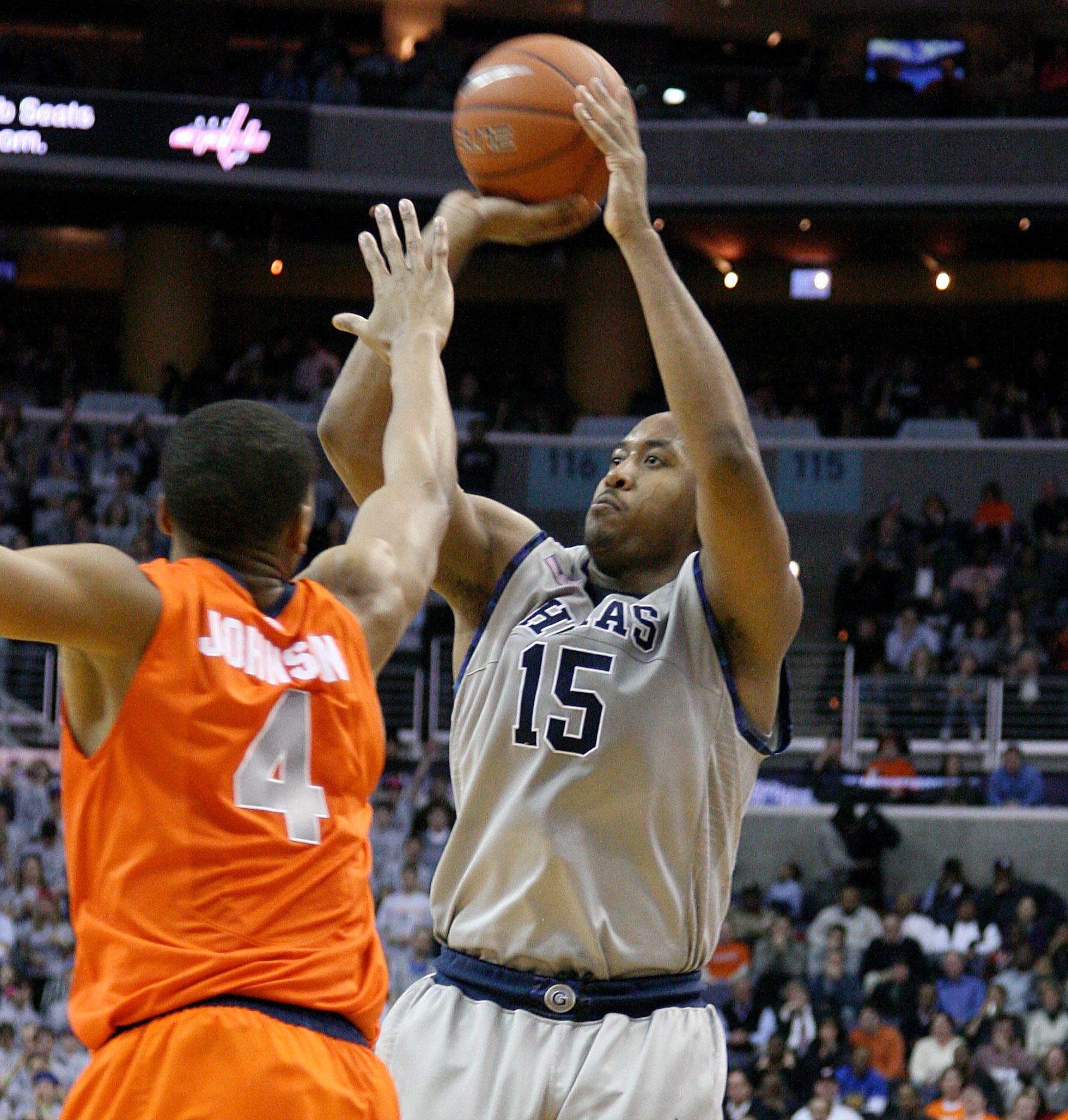
Austin Freeman sat, microphones intruding his personal space, with his coach to his left and cameras and reporters all waiting in anticipation to see what he was going to say.
Then a reporter asked the question everyone had on their minds: What did Freeman think when he was told he had been diagnosed with diabetes?
“To hear that, it was tough at first, but I know that I can deal with something like this,” Freeman said. “It’s something I have to deal with, and I’ll be able to take care of it.”
With that one sentence, in probably one of the most trying times of both his basketball career and his life, Freeman described how he functions.
Stay calm and deal with it.
It’s what he has done his entire career at Georgetown on the court, and now he has to do likewise off of the court. If Freeman’s track record is any indication, he’ll be fine and so will his team.
In October, I sat down with Head Coach John Thompson III for a feature about Freeman and Chris Wright. When the topic of Freeman’s demeanor came up, Thompson – as he is sometimes prone to do – asked me, a know-nothing reporter, what I thought the answer to the question was.
Calm and relatively quiet was my short answer.
“Yeah, Austin is far from being an introvert, but he’s not the most animated person on our team either,” Thompson replied.
While Greg Monroe and Wright may keep their emotions on their sleeves more often, for much of this season Freeman has been a silent assassin for the Hoyas.
As the DeMatha Miracle Man stormed to 33 points in a comeback win over Connecticut, you would have been hard pressed to see him react, positively or negatively, to any play. When he took off from Pennsylvania Avenue and slammed home a monster dunk against Syracuse, he continued about his business. As he drained three-pointer after three-pointer in Louisville there weren’t any theatrics, just a calm business-like attitude.
His understated demeanor often hid the fact that he has averaged close to 20 points per game and has shot 57.1 percent from the floor in Big East play.
So imagine how rattled his teammates were when Freeman, the source of their calm all season long, was in the hospital as they took the floor on Monday night in Morgantown.
“We were very concerned about him,” Jason Clark said. “You could see it in his face and tell he wasn’t himself. We’re glad we know what it is now, and we’re looking forward to being with him and helping him get through it.”
Freeman’s calm demeanor since his diagnosis has influenced his teammates, calming any anxiety they may have had over his condition.
“That’s just Austin – he’s calm about everything,” Clark said. “That does help us a lot because if he was panicking about it, it would make us feel tense, but since he’s calm about it that does help us stay calm about it.”
Freeman probably helped calm any on-the-court fears Wednesday during practice.
“He hit every shot he put up. [It’s] the same Austin,” Wright said about Freeman at practice. “Nothing’s changed on the court. Literally for a stretch there he didn’t miss a shot. He’s been doing it all year.”
Now starts the next phase for Freeman. The next concern for him – now that he has leveled his blood sugar – will be to get a better feel for how his body responds to the physical demands of practices and games. Even then, Freeman, a competitor who tried to play against Notre Dame despite his diminished energy, needs to be cognizant of when he should be on the court and when it’s best for him to give his body a break. It won’t be easy for someone as competitive as Freeman, but it’s a necessity.
“It just comes to a point where I have to be honest with myself,” Freeman said. “If I’m not feeling well, to tell coach or the doctor that I’m not feeling well. Or even my teammates if no one else is around and I’m not feeling well. I just have to be honest with myself.”
Whether this serves as an on-the-court rallying point for the Hoyas remains to be seen and is largely irrelevant, but for this unit that constantly stresses how close they are off the court, they’ve rallied around their friend.
“Basketball-wise it’s not important. It’s just important that he’s fine,” Wright said. “I think he’ll make a good judgment on when he’s ready to play. We support him in everything. He’s our teammate, but more importantly he’s our friend.”
Thompson said he expects Freeman to be back for the Hoyas at some point this season, whether that is Saturday or at a future date. Whatever the case, Freeman, as he has all season, has given his teammates a blueprint for how to deal with adversity as they move forward.
Stay calm and deal with it.
Ryan Travers is a senior in the College and a former Sports Editor at THE HOYA. Follow him on [Twitter](https://twitter.com/illprocedure). He can be reached at traversthehoya.com. Illegal Procedure appears in every Friday issue of HOYA SPORTS.








